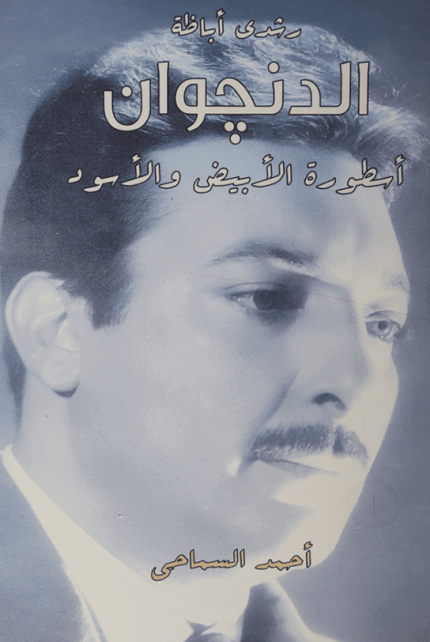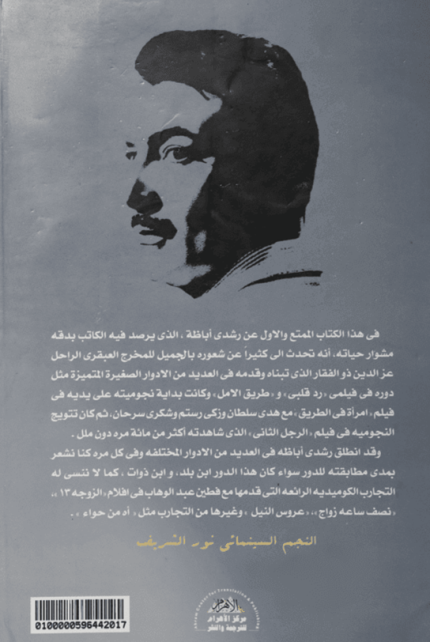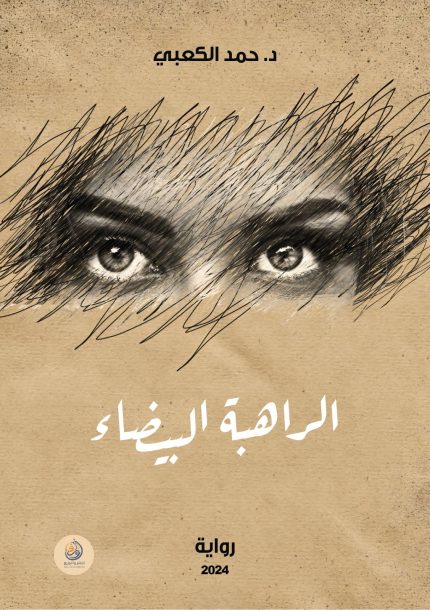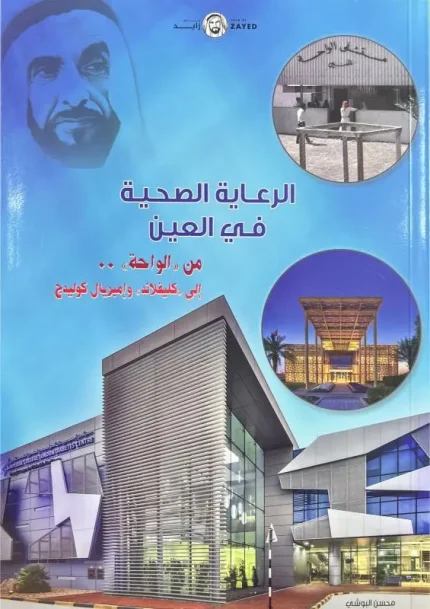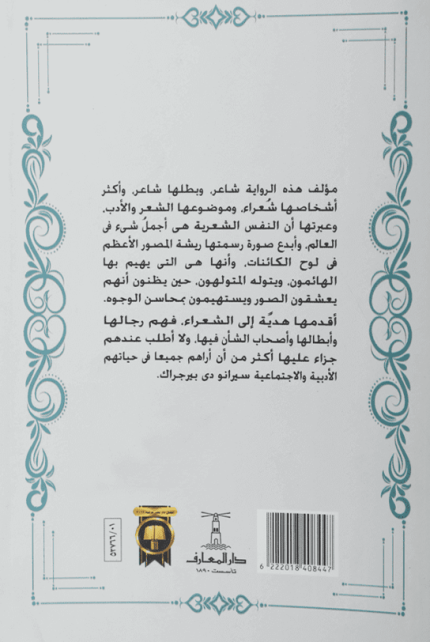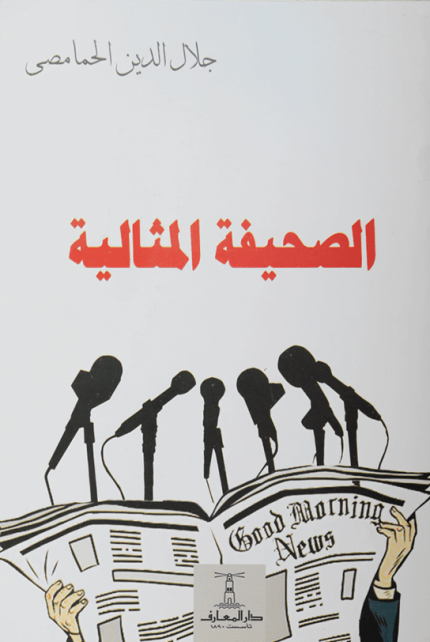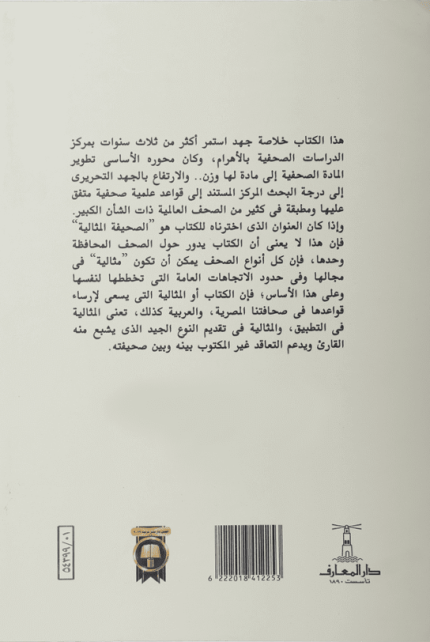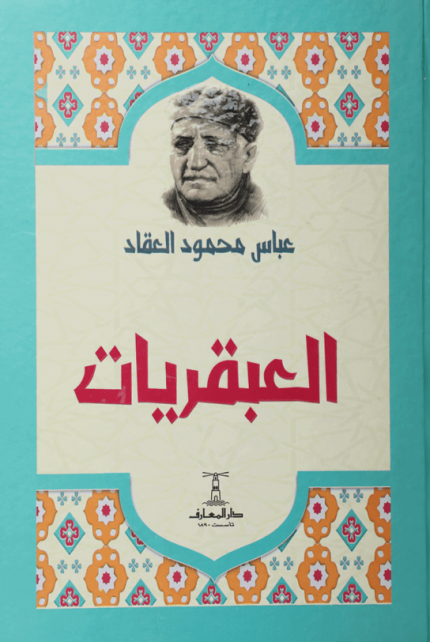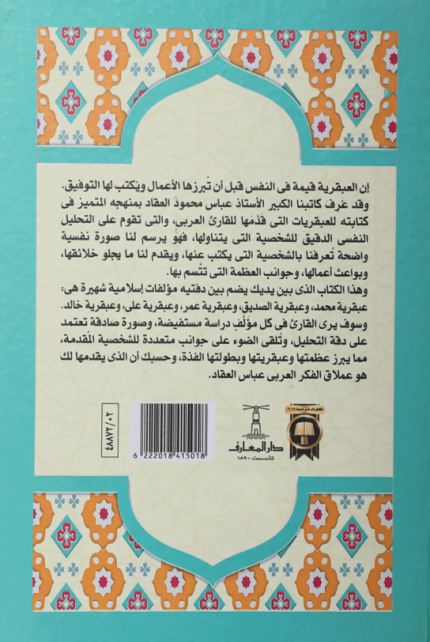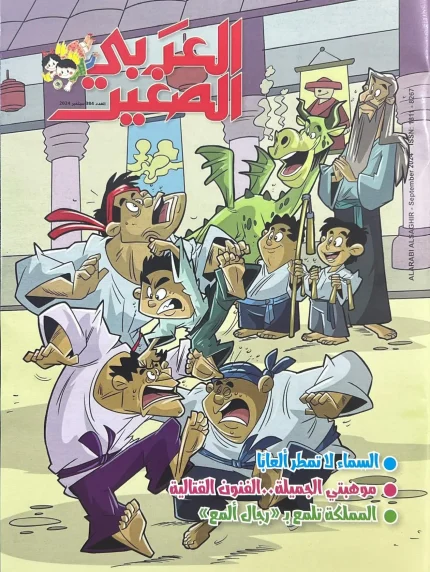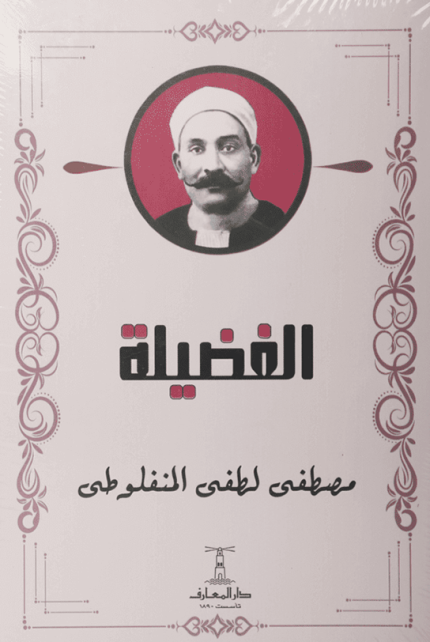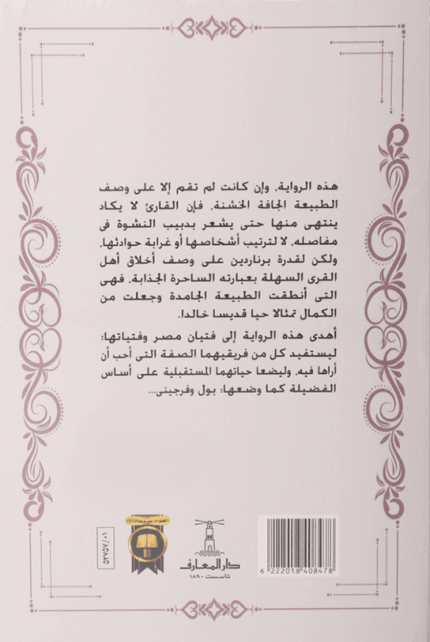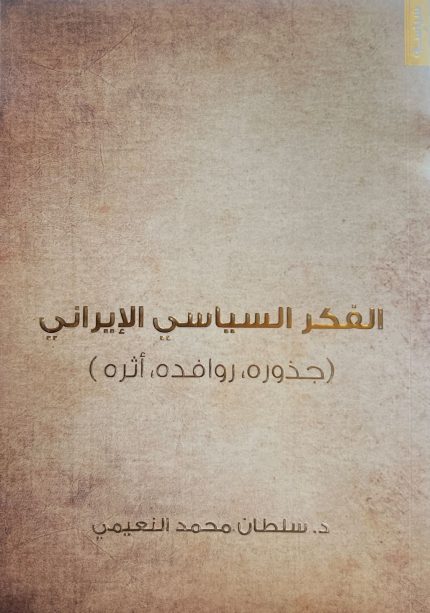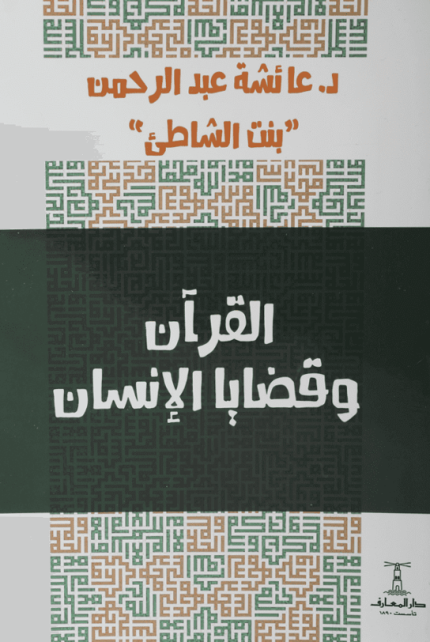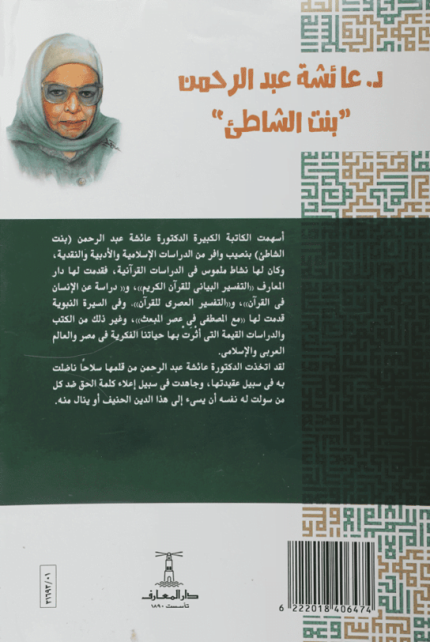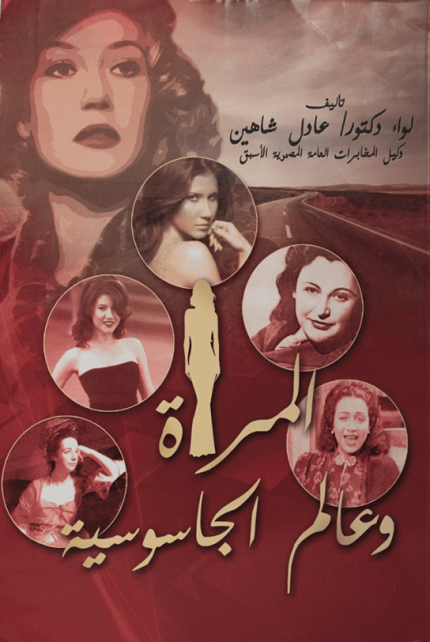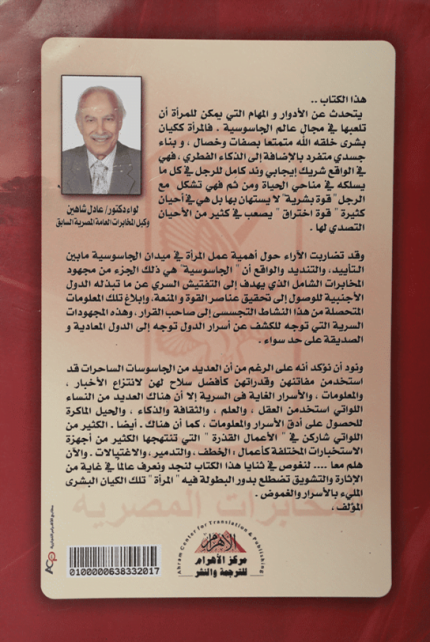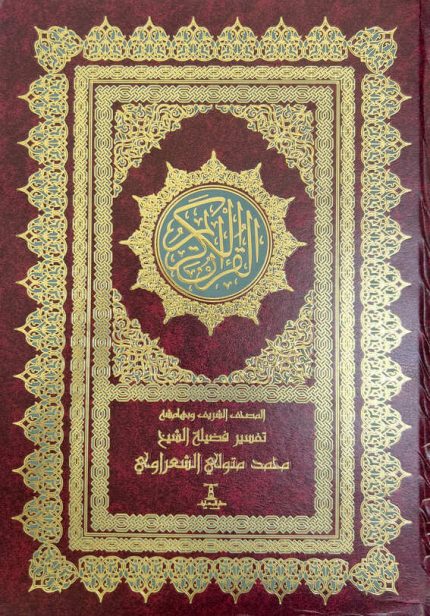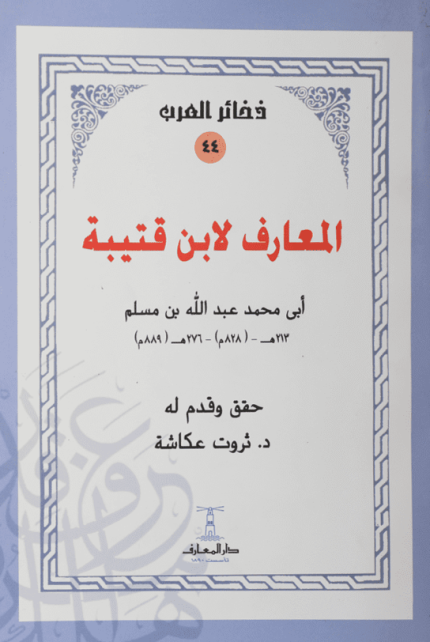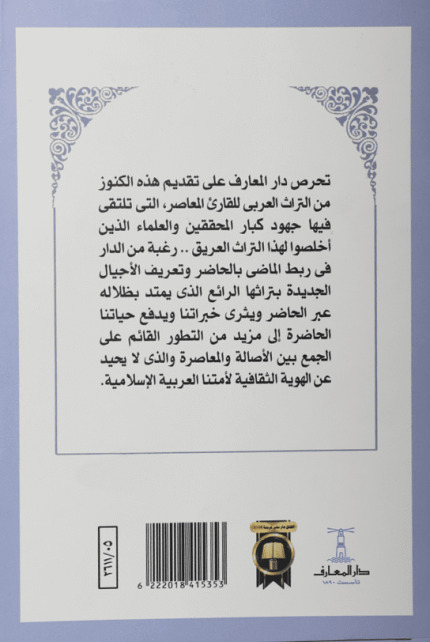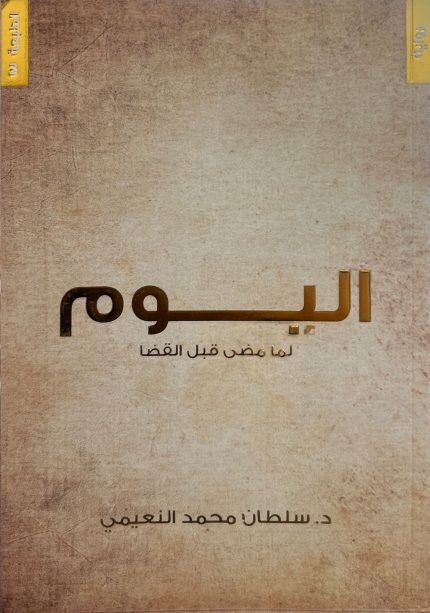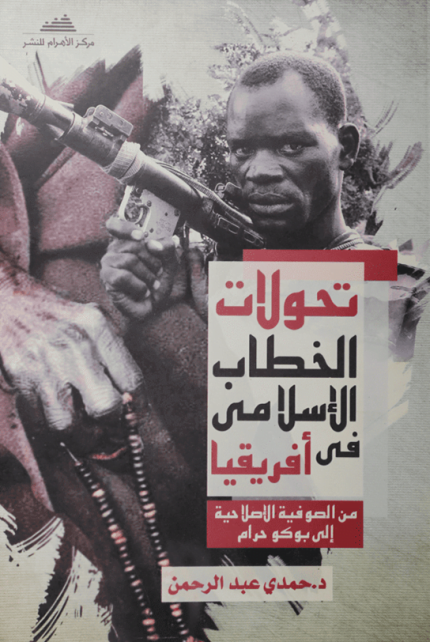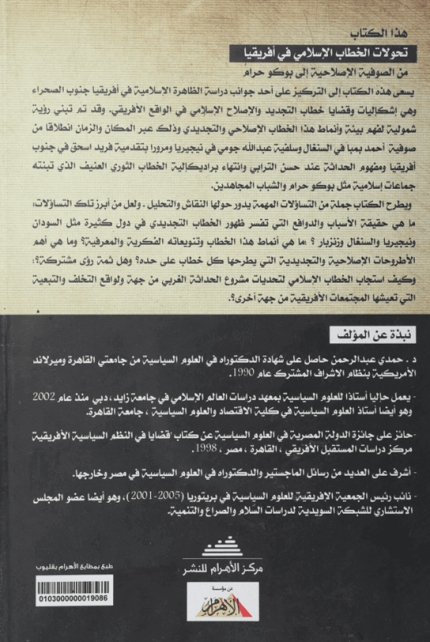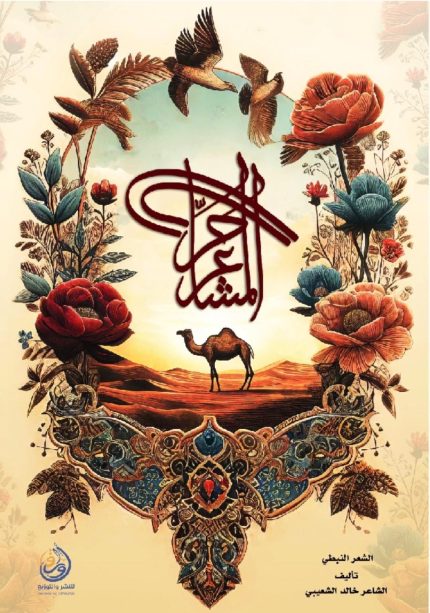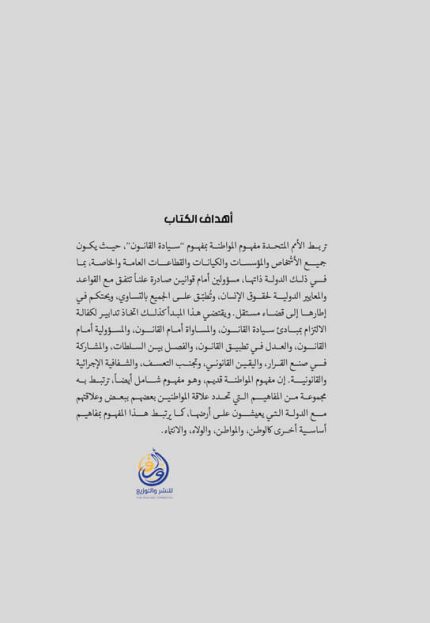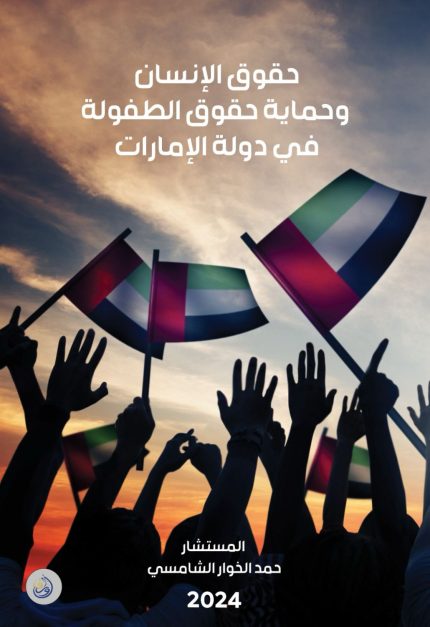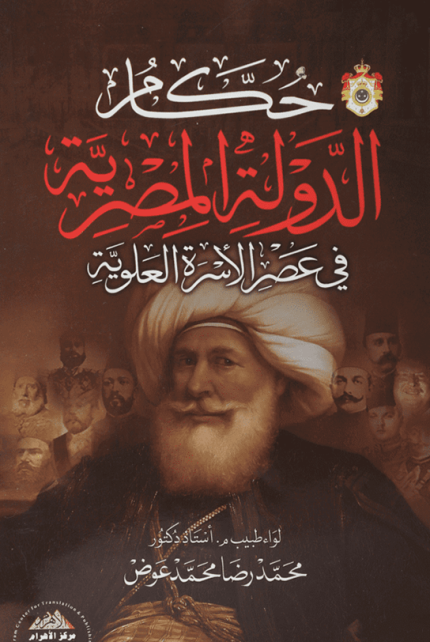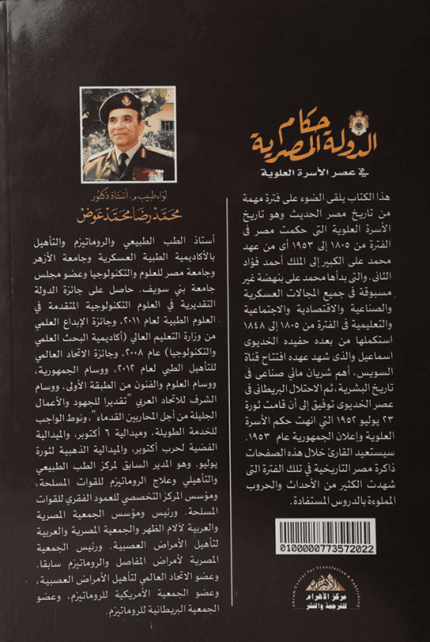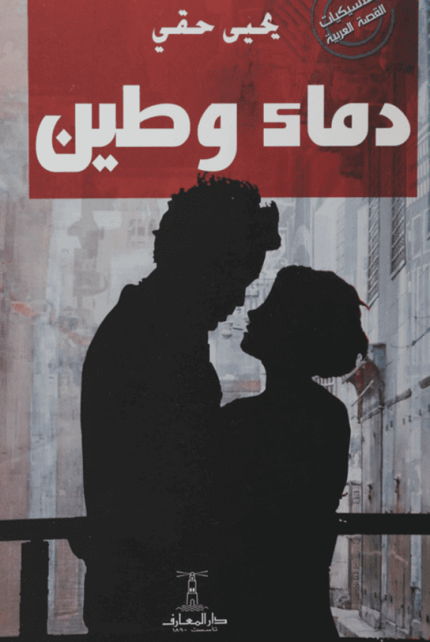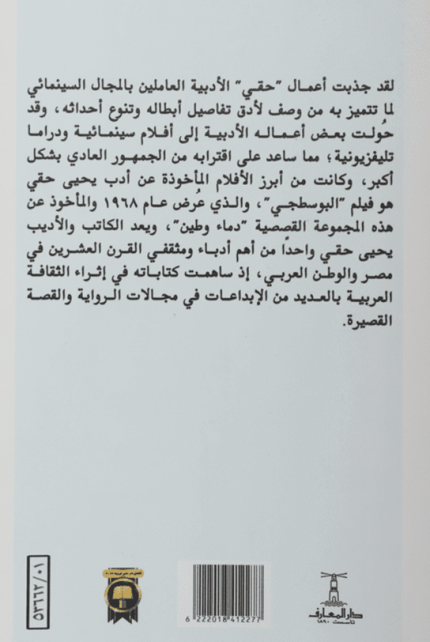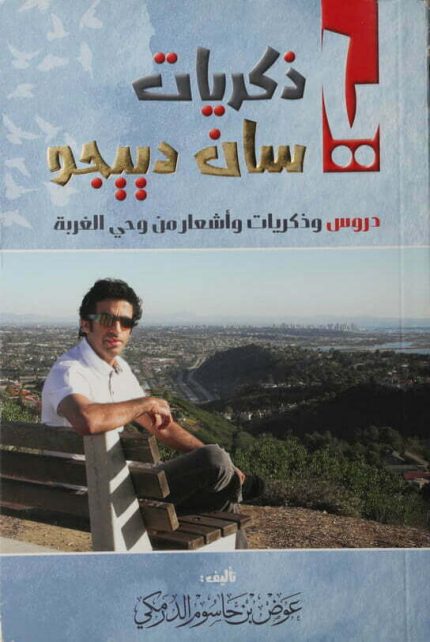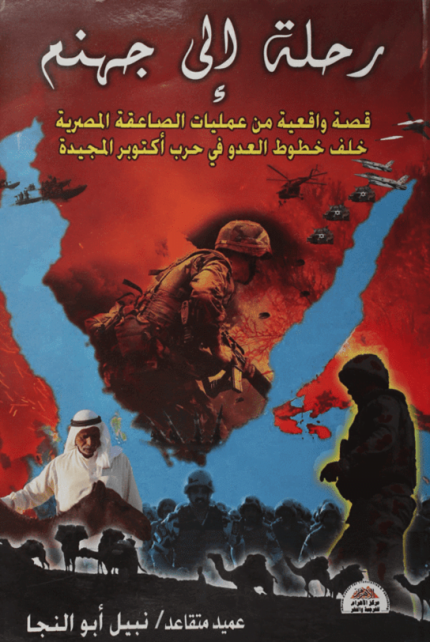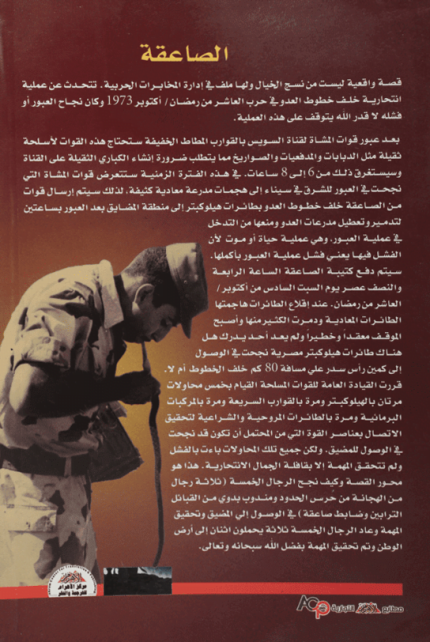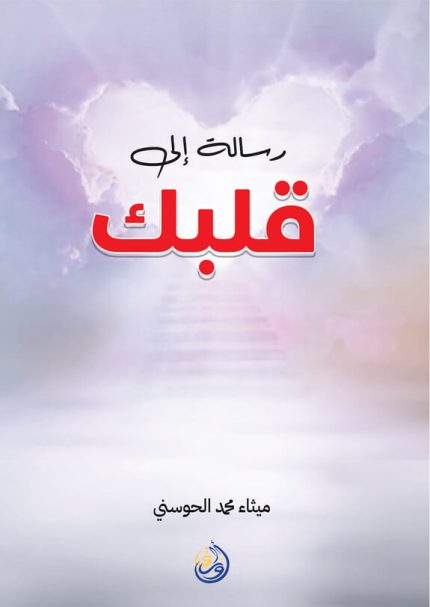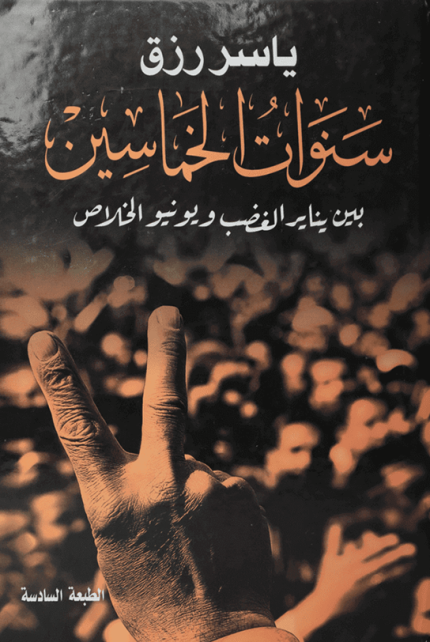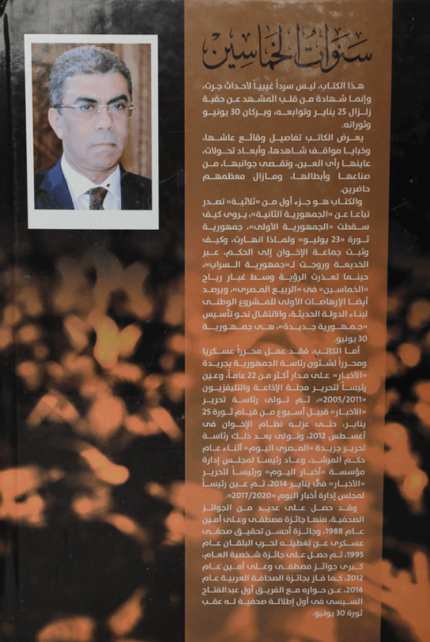الدنجوان رشدي أباظة – أسطورة الأبيض والأسود
55.00 AEDIn this enjoyable and first book about Rushdi Abaza, the writer meticulously traces his life journey. He speaks at length about his admiration for the late brilliant director Ezz El-Din Zulfikar, who took him under his wing and cast him in several distinctive supporting roles, such as his roles in the films “My Heart Responds” and “The Path of Hope.” His stardom began under Zulfikar’s guidance in the film “A Woman on the Road” alongside Hoda Sultan, Zaki Rostom, and Shukry Sarhan. However, the pinnacle of his fame came with the film “The Second Man,” which I watched more than a hundred times without getting bored.
Rushdi Abaza embarked on various roles, and each time we felt how perfectly he embodied the character, whether it was a patriotic role or a role reflecting inner conflicts. We also can’t forget his fantastic comedic performances with Faten Hamama in films like “Wife Number 13,” “Half an Hour of Marriage,” “Bride of the Nile,” and others. Additionally, he had other experiments like “Oh, Eve…”
الشاعر
50.00 AEDThe author of this novel is a poet, and its protagonist is also a poet. Most of its characters are poets, and its subject matter revolves around poetry and literature. It conveys that the poetic soul is the most beautiful thing in the world, and it beautifully portrays an image sketched by the greatest photographer on the canvas of existence. It depicts that it is this poetic soul that captivates the wanderers and enchants the enchanted ones, as they believe they are in love with appearances and captivated by the beauty of faces. I offer it as a gift to the poets, for they are its men, heroes, and distinguished figures. I seek no reward from them for it, other than seeing them all in their literary and social lives, like Cyrano de Bergerac.
الصحيفة المثالية
35.00 AEDThis book is the culmination of over 3 years of continuous effort at Al Ahram Regional Institute For Journalism.
Its main focus was on developing journalistic material into content that carries weight and significance, achieved through editorial effort reaching the level of research that is based on agreed-upon and applied journalistic principles, similar to those followed by many reputable international newspapers. While the title we have chosen for the book is “The Ideal Newspaper,” it does not mean that the book revolves solely around conservative newspapers. In fact, all types of newspapers can be considered ideal in their respective fields and within the general directions they plan for themselves. Based on this premise, the book seeks to establish a set of principles for our Egyptian and Arab journalism that promote ideal practices in application and presentation, providing readers with high-quality content that satisfies their needs and supports an unwritten contract between them and their newspaper.
العبقريات
65.00 AEDGenius is a value within oneself before it is showcased through actions and receives success. Our great writer, Professor Abbas Mahmoud Al-Aqqad, was known for his distinctive approach in portraying geniuses in his writings for the Arab readers. His method relies on a precise psychological analysis of the characters he delves into. He paints a clear psychological picture that acquaints us with the personality he writes about, revealing their characteristics, motivations, and the aspects of greatness they embody.
The book in your hands contains renowned Islamic works on genius, including “The Genius of Muhammad,” “The Genius of Al-Siddiq,” “The Genius of Omar,” “The Genius of Ali,” and “The Genius of Khalid.” In each of these works, the reader will find an extensive study and a sincere depiction based on meticulous analysis, shedding light on various aspects of the presented personality, highlighting their grandeur, brilliance, and exceptional heroism. It is worth mentioning that the one presenting this to you is the giant of Arab thought, Abbas Al-Aqqad.
الفضيلة
25.00 AEDThis novel, even though it is solely based on describing the harsh and arid nature, captivates the reader to the point where they feel a surge of ecstasy in their very bones. Not because of the arrangement of its characters or the peculiarity of its events, but due to Bernardeen’s ability to enchantingly and alluringly depict the morals of the people in the simple villages. They are the ones who brought life to the inert nature and turned perfection into a living, immortal saintly statue.
This novel is dedicated to the young boys and girls of Egypt, so that each of their teams may benefit from the virtues I wish to see in them, and so they may base their future lives on virtue, just as Paul and Virginia did.
القرآن وقضايا الانسان
65.00 AEDThe great writer, Dr. Aisha Abdul Rahman (Bint Al-Shati), made significant contributions to Islamic, literary, and critical studies. She had a notable presence in Quranic studies, presenting works such as “The Exegetical Interpretation of the Holy Quran” and “A Study of Man in the Quran.” In the field of Prophetic biography, she authored “The Prophet’s Life during the Era of the Message,” among other valuable books and studies that enriched our intellectual life in Egypt, the Arab world, and the Islamic sphere. Dr. Aisha Abdul Rahman wielded her pen as a weapon to defend her beliefs and strived to uphold the truth against anyone who dared to malign or undermine this noble religion.
المرأة وعالم الجاسوسية
35.00 AEDIt discusses the roles and tasks that women can play in the world of espionage. As human beings, women are created by God with unique qualities and attributes, and they have a distinct physical structure along with inherent intelligence. In reality, they are positive partners and formidable adversaries to men in all aspects of life. Therefore, they form a “human force” with the man that should not be underestimated. In many instances, they represent a “penetrating force” that is difficult to resist.
Opinions have been conflicting about the importance of women’s involvement in the field of espionage, ranging from support to condemnation. The fact remains that “espionage” is that part of comprehensive intelligence efforts aimed at covertly examining foreign countries’ activities to access elements of strength and vulnerability. The information obtained from these espionage activities is then communicated to the decision-maker. These clandestine efforts, directed at uncovering the secrets of nations, are directed towards both enemy and friendly countries alike.
We would like to emphasize that although many enchanting female spies have used their charms and abilities as their best weapons to extract news, information, and highly confidential secrets, there are also many women who have employed their minds, knowledge, culture, intelligence, and cunning tricks to obtain the most accurate secrets and information. Moreover, many have participated in “dirty work” pursued by various intelligence agencies, such as kidnapping, destruction, and assassinations.
Now, let’s dive into the depths of this book to discover and explore a thrilling and suspenseful world where “women” take on the role of heroines. They are human entities filled with secrets and mysteries, shaping the compelling.
المعارف لابن قتيبة
70.00 AEDDar Al-Maaref is keen on presenting these treasures from the Arab heritage to the contemporary reader, where the efforts of eminent researchers and scholars converge, who have dedicated themselves to this ancient heritage. This is driven by the desire of the publishing house to connect the past with the present and introduce the new generations to their magnificent heritage, which extends its influence through the present, enriches our experiences, and drives our current lives towards further development based on the fusion of authenticity and modernity, without deviating from the cultural identity of our Arab-Islamic nation.
تحولات الخطاب الإسلامي في أفريقيا
35.00 AEDThis book “Transformations of Islamic Discourse in Africa: From Reformist Sufism to Boko Haram” seeks to focus on one aspect of the study of the Islamic phenomenon in Sub-Saharan Africa, namely, the problematic issues and concerns related to the discourse of Islamic renewal and reform in the African context. A comprehensive vision is adopted to understand the environment and patterns of this reformist discourse across time and space, ranging from the Sufi Ahmad Bamba in Senegal, the Salafi Abdullahi Gummi in Nigeria, the progressive Farid Esack in South Africa, and the concept of modernity by Hassan Turabi, to the radical and violent revolutionary discourse adopted by Islamist groups like Boko Haram and Al-Shabaab.
The book raises several important questions that are subject to discussion and analysis. One of the key questions is the reality of the reasons and motivations that explain the emergence of the reformist discourse in many countries such as Sudan, Nigeria, Senegal, and Zanzibar. What are the patterns of this discourse and its intellectual and epistemological variations? What are the main reformist and renewal theses proposed by each discourse separately? Are there any common visions among them?
Moreover, the book explores how Islamic discourse responded to the challenges of the Western modernity project on one hand and the realities of underdevelopment and dependency experienced by African societies on the other hand
Brief About the Author:
Dr. Hamdi Abdel Rahman holds a Ph.D. in Political Science from both Cairo University and the University of Maryland, USA, under the joint supervision system in 1990.
He currently serves as a Professor of Political Science at the Institute of Islamic World Studies at Zayed University, Dubai, since 2002, and he is also a Professor of Political Science at the Faculty of Economics and Political Science, Cairo University.
He was awarded the Egyptian State Award in Political Science for his book “Issues in African Political Systems,” published by the African Future Studies Center in Cairo, Egypt, in 1998.
He has supervised numerous master’s and doctoral theses in Political Science in Egypt and abroad.
He was the Vice President of the African Association of Political Science in Pretoria (2005-2001), and he is also a member of the Advisory Board of the Swedish Network of Peace, Conflict, and Development Studies.
حكام الدولة المصرية في عصر الأسرة العلوية
45.00 AEDThis book sheds light on an important period in modern Egyptian history, the era of the Alawi Dynasty, which ruled from 1805 to 1953, starting from the reign of Muhammad Ali Pasha to King Ahmed Fuad II. This dynasty began with Muhammad Ali’s unprecedented renaissance in various military, industrial, economic, social, and educational fields from 1805 to 1848. His grandson, Khedive Ismail, continued and witnessed the opening of the Suez Canal, the most significant artificial waterway in human history , followed by the British occupation during the reign of Khedive Tewfik until the July 23rd Revolution of 1952, which ended the rule of the Alawi Dynasty and declared the Republic in 1953. Within these pages, the reader will rediscover the historical memory of Egypt during that period, which witnessed numerous events and wars filled with valuable lessons.
He is a Professor of Physical Medicine, Rheumatology, and Rehabilitation at the Military Medical Academy, Al-Azhar University, and Misr University for Science and Technology. He is also a member of the University Council of Beni Suef. He has been awarded the State Appreciation Award in Advanced Technological Sciences in Medical Sciences for the year 2011, the Scientific Innovation Award from the Ministry of Higher Education (Academy of Scientific Research and Technology) in 2008, the World Federation of Physical Medicine and Rehabilitation Award in 2012, the Order of the Republic, the Order of Sciences and Arts of the First Class, and the Order of Honor from the Arab League in recognition of his distinguished efforts and work for veterans.
He received the Long Service Duty Ribbon and the October 6th Medal, the Silver Medal for the October War, and the Gold Medal for the July Revolution. He is the former director of the Physical Medicine and Rehabilitation Center for the Armed Forces and the founder of the Spinal Center for the Armed Forces. He is the president and founder of the Egyptian and Arab Association for Back Pain and the Egyptian and Arab Association for Neurological Rehabilitation. He was also the former president of the Egyptian Association for Joint and Rheumatism Diseases. He is a member of the World Federation for Neurological Rehabilitation, the American Rheumatism Association, and the British Rheumatism Association.
دماء وطين
35.00 AEDyahya Haqqi’s Literature works have attracted filmmakers due to their detailed descriptions of characters and diverse events. Some of his literary works have been adapted into films and television dramas, which helped him connect with a larger audience. One of the most prominent films based on Yahya Haqqi’s literature is “Al-Bosaty,” which was released in 1968 and adapted from the short story collection “Dama’ wa Tayyin” (Blood and Clay). The writer and intellectual Yahya Haqqi is considered one of the most significant authors of the 20th century in Egypt and the Arab world. His writings have enriched Arab culture with numerous creative contributions in the fields of novels and short stories.
رحلة إلى جهنم
55.00 AEDA True Story, Not a Product of Imagination, with a File in Military Intelligence. It tells of a suicide mission behind enemy lines during the October 6th War in 1973, where the success or failure of the crossing depended on this operation.
After the infantry forces crossed the Suez Canal using lightweight rubber boats, they needed heavy weapons such as tanks, artillery, and missiles, requiring the construction of heavy bridges over the canal, a process that would take 6 to 8 hours. During this time, the infantry forces that successfully crossed to the east of Sinai would be subjected to heavy enemy armored attacks. Therefore, a unit from the ‘Saaqa’ (Thunderbolt) forces would be sent behind enemy lines by helicopters to the ‘Madaa’iq’ area, two hours after the crossing, to destroy and disable enemy armored vehicles and prevent them from interfering in the crossing operation. This was a life or death operation because failure in it would mean the failure of the entire crossing operation.
The ‘Saaqa’ unit would depart at 4:30 PM on Saturday, the 6th of October (10th of Ramadan). As the helicopters took off, they were attacked by enemy aircraft, and many of them were destroyed, making the situation complicated and dangerous. Nobody knew if any Egyptian helicopters managed to reach the ambush site in Ras Sudr, 80 km behind the enemy lines.
The General Command of the Armed Forces decided to make five attempts: two by helicopters, one by speedboats, one by amphibious vehicles, and one by gliders, to make contact with the forces that might have succeeded in reaching the strait. However, all these attempts failed, except for the suicide camel caravan.
This is the core of the story, and how the five men (three from the border guards, a tribal representative from Bedouin tribes, and a ‘Saaqa’ officer) managed to reach the strait, fulfill the mission, and then return home. Three of them carried two others back to the homeland, and the mission was accomplished, thanks to God Almighty.
سنوات الخماسين
110.00 AEDThis book is not just a narrative of events; it is a testimony from the heart of the scene about the era of the earthquake on January 25th and its aftermath, as well as the volcanic eruption on June 30th and its aftermath. The author presents details of experiences lived, the hidden aspects of witnessed situations, and the dimensions of transformations that he observed closely, covering all aspects from their makers to the heroes, most of whom are still present.
The book is the first part of a trilogy to be successively released by “The Second Republic.” It narrates how “The First Republic” fell, the July 23rd Revolution Republic, and why it collapsed. It also sheds light on how the Muslim Brotherhood deceived and propagated the “Illusory Republic” when visibility was obscured amidst the dust of the “Khamasin” winds during the “Egyptian Spring.” Furthermore, it also captures the initial flashes of the national project to build the modern state and transition towards establishing the “New Republic,” the June 30th Republic.
As for the author, he worked as a military editor and presidential affairs editor for “Al-Ahram” newspaper for over 22 years. He was appointed as the editor-in-chief of the Radio and Television Magazine “2005/2011,” then took over as editor-in-chief of “Al-Ahram” newspaper a week before the January 25th Revolution, until he was removed by the Muslim Brotherhood regime in August 2012. After that, he became the editor-in-chief of “Al-Masry Al-Youm” newspaper during the rule of the Brotherhood leader. Later on, he returned as the chairman of the board of directors of “Akhbar Al-Youm” foundation and the editor-in-chief of “Al-Akhbar” in January 2014, and was appointed as the chairman of the board of directors of “Akhbar Al-Youm” from 2017 to 2020.
He has received numerous journalism awards, including the Mustafa and Ali Amin General Secretariat Award in 1988, the Best Military Journalism Award for his coverage of the Balkan War in 1995, and the Person of the Year Award, one of the major Mustafa and Ali Amin General Secretariat awards, in 2012. He also won the Arab Journalism Award in 2014 for his interview with Field Marshal Abdel Fattah El-Sisi in his first press appearance after the June 30th Revolution.


